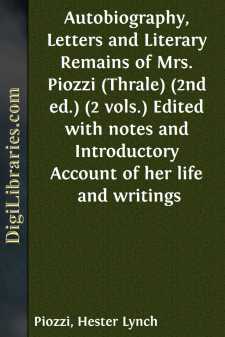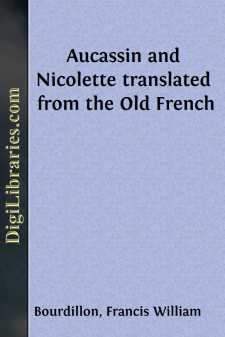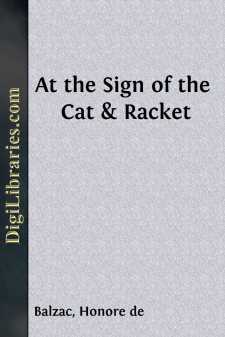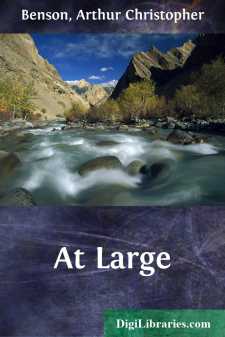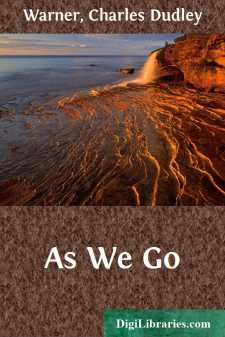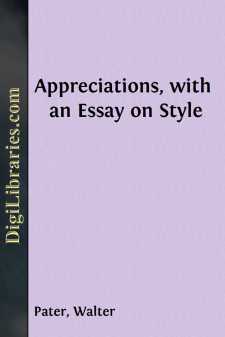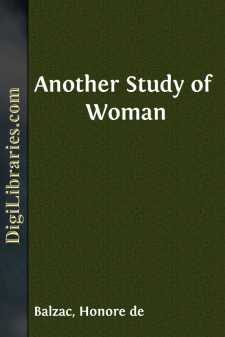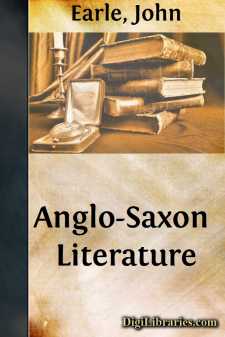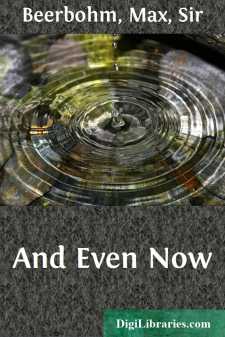Literary Collections
- American 84
- Ancient, Classical & Medieval 14
- Asian 1
- Australian & Oceanian 1
- Canadian 55
- Continental European 121
- English, Irish, Scottish, Welsh 179
- Essays 160
- General 24
- Letters 46
- Middle Eastern 1
Literary Collections Books
Sort by:
INTRODUCTION: Dr. Johnson was hailed the colossus of Literature by a generation who measured him against men of no common mould—against Hume, Robertson, Gibbon, Warburton, the Wartons, Fielding, Richardson, Smollett, Gray, Goldsmith, and Burke. Any one of these may have surpassed the great lexicographer in some branch of learning or domain of genius; but as a man of letters, in the highest sense of...
more...
INTRODUCTION The story of Love, that simple theme with variations ad libitum, ad infinitum, is never old, never stale, never out-of-date. And as we sometimes seek rest from the brilliant audacities and complex passions of Wagner or Tschaikowsky in the tender simplicity of some ancient English air, so we occasionally turn with relief from the wit and insight and subtlety of our modern novelists to the...
more...
by:
Honore de Balzac
AT THE SIGN OF THE CAT AND RACKET Half-way down the Rue Saint-Denis, almost at the corner of the Rue du Petit-Lion, there stood formerly one of those delightful houses which enable historians to reconstruct old Paris by analogy. The threatening walls of this tumbledown abode seemed to have been decorated with hieroglyphics. For what other name could the passer-by give to the Xs and Vs which the...
more...
I. THE SCENE Yes, of course it is an experiment! But it is made in corpore vili. It is not irreparable, and there is no reason, more's the pity, why I should not please myself. I will ask—it is a rhetorical question which needs no answer—what is a hapless bachelor to do, who is professionally occupied and tied down in a certain place for just half the year? What is he to do with the other...
more...
OUR PRESIDENT We are so much accustomed to kings and queens and other privileged persons of that sort in this world that it is only on reflection that we wonder how they became so. The mystery is not their continuance, but how did they get a start? We take little help from studying the bees —originally no one could have been born a queen. There must have been not only a selection, but an election,...
more...
by:
Walter Pater
STYLE [5] SINCE all progress of mind consists for the most part in differentiation, in the resolution of an obscure and complex object into its component aspects, it is surely the stupidest of losses to confuse things which right reason has put asunder, to lose the sense of achieved distinctions, the distinction between poetry and prose, for instance, or, to speak more exactly, between the laws and...
more...
by:
Honore de Balzac
ANOTHER STUDY OF WOMAN At Paris there are almost always two separate parties going on at every ball and rout. First, an official party, composed of the persons invited, a fashionable and much-bored circle. Each one grimaces for his neighbor's eye; most of the younger women are there for one person only; when each woman has assured herself that for that one she is the handsomest woman in the room,...
more...
by:
John Galsworthy
THE ROAD The road stretched in a pale, straight streak, narrowing to a mere thread at the limit of vision—the only living thing in the wild darkness. All was very still. It had been raining; the wet heather and the pines gave forth scent, and little gusty shivers shook the dripping birch trees. In the pools of sky, between broken clouds, a few stars shone, and half of a thin moon was seen from time...
more...
by:
John Earle
CHAPTER I. A PRELIMINARY VIEW. Anglo-Saxon literature is the oldest of the vernacular literatures of modern Europe; and it is a consequence of this that its relations with Latin literature have been the closest. All the vernacular literatures have been influenced by the Latin, but of Anglo-Saxon literature alone can it be said that it has been subjected to no other influence. This literature was nursed...
more...
by:
Max Beerbohm
A RELIC 1918. Yesterday I found in a cupboard an old, small, battered portmanteau which, by the initials on it, I recognised as my own property. The lock appeared to have been forced. I dimly remembered having forced it myself, with a poker, in my hot youth, after some journey in which I had lost the key; and this act of violence was probably the reason why the trunk had so long ago ceased to travel. I...
more...


